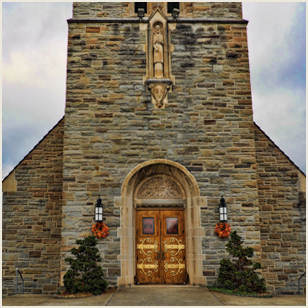Page: Quotes, Quote Topic, Struggle (with Sin)
Gluttony should be destroyed by self-control; unchastity by desire for God and longing for the blessings held in store; avarice by compassion for the poor; anger by goodwill and love for all men; worldly dejection by spiritual joy; listlessness by patience, perseverance and offering thanks to God; self-esteem by doing good in secret and by praying constantly with a contrite heart; and pride by not judging or despising anyone in the manner of the boastful Pharisee (cf. Lk. 18:11-12), and by considering oneself the least of all men.
–Saint John of Damascus (c. 676-750)
Page: Quotes, Quote Topic, Struggle (with Sin)
Do not be surprised that you fall every day; do not give up, but stand your ground courageously. And assuredly, the angel who guards you will honor your patience.
–Saint John Climacus (c. 525-606)
Page: Quotes, Quote Topic, Struggle (with Sin)
Conquer temptations by the patience and prayer. If you oppose them without these, you will fall all the more severely.
–Saint Mark the Ascetic (Fifth Century)
Page: Quotes, Quote Topic, Struggle (with Sin)
The spiritual combat in which we kill our passions to put on the new man is the most difficult struggle of all. We must never weary of this combat, but fight the holy fight fervently and perseveringly.
–Saint Nilus (d. 430)
Page: Quotes, Quote Topic, Struggle (with Sin)
The devil strains every nerve to secure the souls which belong to Christ. We should not grudge our toil in wresting them from Satan and giving them back to God.
–Saint Sebastian (Third Century)
Page: Quotes, Quote Topic, Struggle (with Sin)
There is only one way leading upwards for all who see, lightened with heavenly light. But many and dark and contrary are the ways of those who see not. This way leads to the Kingdom of heaven, uniting man to God: but those ways bring down to death, separating man from God. Therefore it is necessary for you and for all who care for their own salvation to make your course unswerving, firm, and sure by means of faith.
–Saint Irenaeus of Lyons (late Second Century)

